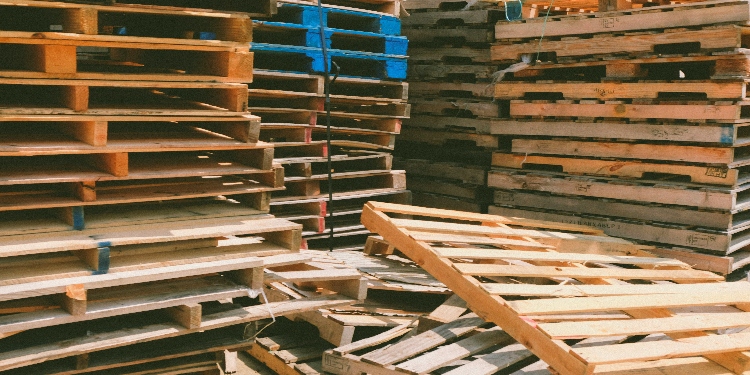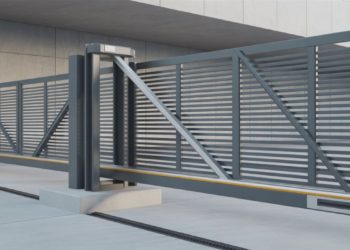Wood pallets are used in any different industry that you can think of logistics and warehousing, food services and processing, production, manufacturing etc. They provide a durable and reusable base to stack, store and move product from suppliers to your facility. Since companies are looking for the most cost effective supply chain solutions, knowledge on how wooden pallets are made is important. For businesses that require high quality and long-lasting wooden pallets, partnering with a professional wooden pallet manufacturer will ensure the product is up to industry standards.
Selection of Raw Materials
Now let us discuss how wooden pallets are made: In making a wood pallet, first, you need to gather top quality wood. Heavy duty pallets are usually made from hardwood, such as oak or maple; for lighter applications, some users prefer softwoods, such as pine. There should be no defects, cracks or rot in the wood that may affect the structure.
Sustainability is also a factor. “The wooden pallet makers that I work with all buy wood from certified forests to be green — or eco-conscious, and cut down mainly on their effect on the earth.
Cutting and Sizing the Wood
When raw lumber is located, it is sawn to basic sizes for pallet parts: deckboards, stringers and blocks. The trimming process is performed with precision saws for consistency. The correct size of the pallet is essential because even slight differences can interfere with the stability and weight distribution of a load on the pallet.
During that process, the wood is also graded for strength and beauty. Knotted, cleft or warped timber is either replaced by straight boards that are then discarded, or used in less important areas of the pallet.
Drying and Treatment
Wood logistic pallet should be effectively dried to avoid shrinking, warping and mold. This can be accomplished by air-drying or kiln-drying. Kiln-drying is faster and allows for better control, to ensure the wood reaches optimal moisture levels.
Pallets are dried before they are shipped so that they do not host pests or mold during transportation. These treatments defend against bug infestation and render the pallets appropriate for international shipment.
Assembly and Nailing
The second step is building the pallet. Decking is laid on stringers or blocks as prescribed in the design. Modern deck systems are often fastened with a nail gun or other machine that consistently presses the boards onto the joists to form tight connections and stable support for heavy loads.
Professional wooden pallet manufacturer builders are careful about alignment and fastening to ensure long product life with no loose boards or rocking surfaces.
Quality Control
Quality control is of great importance in pallet production. All the pallets are checked for its load containing ability, stability and when it’s built. Pallet manufactures often perform stress tests on the pallets to ascertain if it meets specifications and can carry an expected load without breaking.
If a business is dependent on pallets for shipping and storage, consistency is the name of the game. Working with a trusted wooden pallet manufacturer, business owners can have peace of mind knowing their pallets will perform and maintain safety standards.
Finishing and Marking
After assembling and inspecting, pallets will be sanded or ground for splinters and sharp edges. They are then being stamped/marked with required indications like company logos, load capacity or heat-treatment certificates.
The last steps also increase the life of pallets. Some are coated or sealed to enhance moisture resistance and prevent wear.
Packaging and Distribution
Filled pallets are stacked and ready for shipment. They are commonly packed together in uniform numbers for convenience in handling and transport. Correct stacking also avoids damage in transportation and saves time for clients to reduce cost.
With professional wooden pallet manufacturing, effective logistics and on-time delivery is an integral part of ensuring your business continues to operate smoothly along the supply chain.
The Benefits Of Using Professionally Made Pallets
Here are the reasons why investing in pallets from reliable pallet manufacturer can be beneficial:
- Durability: Well-constructed and using long-lasting materials enhances the life of pallets.
- Consistent: Consistent pallets mean consistent quality, appearance, dimensions and weight – which improves stacking, storage and transport efficiency.
- Standard: Adopt standard production to make sure the product is more safe and suitable for international shipping.
- Cost-effective: Collection and re-use makes them long lasting which in turn reduces cost of replacements and damage to products.
Conclusion
From selecting raw wood to the final, ready-to-be-shipped pallet, every step of production is one that requires precision and control. Customers looking for consistent pallets are well-served by a competent wooden pallet manufacturer, which guarantees sturdy products that meet all industry standards and are fit for supply chain purposes.
In addition to seeing that detailed production process, it also brings to light why investing in professionally made pallets is a crucial part of long-lasting business.











































































